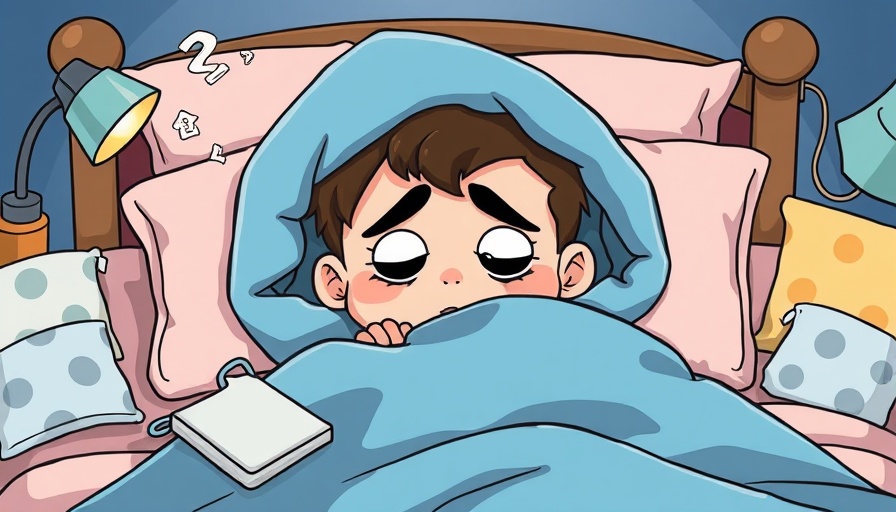
Understanding Sleep Hacks: What Works and What Doesn’t
In today’s fast-paced world, everyone is desperately searching for that elusive perfect sleep, and social media has amplified this quest, leading to an explosion of sleep hacks. From mouth taping to melatonin, the sheer volume of information can confuse anyone trying to enhance their sleep quality. Yet, as sleep science evolves, it’s crucial to sift through these trends to discover what truly benefits our rest.
Sleep Expert Opinions: Who to Trust
Dr. Sujay Kansagra, a prominent sleep physician at Duke Health, often finds himself debunking popular sleep hacks that proliferate on social media, highlighting a gap between anecdotal evidence and scientifically supported claims. For instance, while techniques promoted for instant sleep aids might seem appealing, they often lack robust scientific validation. Dr. Kansagra and other experts stress the importance of trusting scientifically-grounded strategies over viral trends.
The Science Behind Sleep Enhancements
Understanding the mechanics of a good night's sleep is a fundamental first step. According to sleep specialists, certain tools and practices might indeed support better sleep patterns. For example, establishing a consistent sleep schedule aligns your internal circadian rhythm with your lifestyle, making it an evidence-backed strategy for improving sleep.
Popular Sleep Trends: What to Try and What to Skip
Experts often advise caution regarding certain sleep hacks that possess little to no scientific backing:
- Mouth Taping: This practice promotes nasal breathing to reduce snoring. However, Dr. Akinbolaji Akingbola emphasizes a lack of evidence supporting its effectiveness, urging individuals to seek medical assistance for persistent snoring, as it could be symptomatic of a condition such as obstructive sleep apnea.
- Melatonin Supplements: Unlike many hacks, melatonin usage is supported by research as useful for regulating sleep cycles, particularly for shift workers and those with jet lag. Still, experts recommend consulting with a healthcare provider to determine appropriate usage.
- Worry Journals: Writing down thoughts before bed might help quiet the mind. Experts find this technique reduces stress, leading to improved sleep, as it allows individuals to mentally unload before sleep.
Comparing Sleep Hacks: Scientific Validity vs. Social Media Hype
As social media burgeons, various sleep hacks can often appear reputable without proper scientific scrutiny. Understanding which of these are grounded in fact is vital for making informed decisions about sleep strategies. The use of lifestyle science offers support for practices that help with psychological preparedness for sleep.
Future Predictions: Trends on the Horizon
As technology further intersects with health and wellness, we can anticipate an influx of innovative sleep aids that harness advancements in AI and data analytics. In-home biometric devices may provide personalized sleep insights, paving the way for tailored sleep solutions based on one’s health history and sleep patterns.
Crafting Your Personalized Sleep Strategy
For readers hoping to optimize their sleep based on the insights provided: consider your unique lifestyle and wellness goals. Remember to prioritize tried and true methods such as regulating sleep schedules and crafting a tranquil sleep environment over unverified hacks. Engaging in dialogue with health professionals can guide you toward effective interventions.
Conclusion: Don’t Fall for the Hype
Ultimately, while the allure of instant sleep solutions from social media persists, a discerning approach is essential. By relying on evidence-based information and adapting to individual needs with the guidance of experts, achieving better sleep becomes a reachable goal. Prioritize genuine rest, as it’s vital for mental health and overall well-being.
 Add Row
Add Row  Add
Add 




 Add Row
Add Row  Add
Add 

Write A Comment